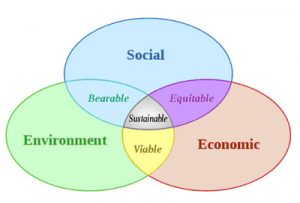This article is more than 5 years old.
My 9th OCLC ILLiad conference got off to a rough start. On my way to Virginia Beach I got a speeding ticket – 76 in a 60 zone. I was NOT running late or in a hurry. I was just in the groove – new Richard Thompson on the stereo, sun roof open, southeastern Virginia lowlands wizzing by….(I don’t suppose I can submit the fine and subsequent increase in insurance premiums on the travel reimbursement form can I?)
ILLiad, in addition to being a misspelling of an epic poem, is the software package we use to handle interlibrary loan and document delivery requests. It also controls the requesting web pages. It is a complex piece of software that allows for copious amounts of customization. The ILLiad conference is a chance for 350+ users of this software to get together and show off, swap ideas and corner the software developers. It is also one of the few national conferences devoted to all things interlibrary loan. (more on that later.)
I enjoy this conference because I always learn something. Most things are very specific to ILLiad use and I won’t bore you with those. But I will share parts of my experience that might be of interest.
First, the conference came with its own smartphone app. Don’t laugh; this is a first for me. The app included my conference schedule, map of the hotel and twitter feed. The conference sponsors would push out announcements through the app to keep everyone informed. This included a message 3 days before the conference reminding me it was time to pack.
I found myself using the app mainly to follow the twitter feed. Tweeting (I think it should be called ‘twittering’) was rampant throughout the conference – a constant running commentary on presentations, poster sessions, restaurant choices, snow flurry sightings….etc. Imagine thought bubbles forming and popping constantly. I found it interesting to read what other people attending the same presentation found worth noting. Did it add to the conference experience? Yes. But it was also a distraction and I could comment on our constant need to be DOING when we should be LISTENING, but I won’t.
The keynote was by Liz Bishoff, longtime librarian turned consultant. Her talk, “Strategies for Sustainability: Resource Sharing in the Digital World” started off with a broad definition of sustainability – the capacity to endure. I like that. She then displayed this sustainability venn diagram.
I’ve never thought about sustainability in this way before. The rest of Ms. Bishoff’s talk consisted of a trip down interlibrary loan memory lane complete with requisite images of a card catalog, the NUC and an OCLC dedicated terminal. I think this was partly an educational exercise for the speaker – she admitted limited experience with interlibrary loan. While I found this part of the talk less useful, I do plan to delve deeper into this model of sustainability as it applies to libraries. Stay tuned…
One of my favorite sessions was on the current state of international interlibrary loan – “Borders without Barriers”. I see this as the last frontier of interlibrary loan. Borrowing and lending within the U.S. has gotten pretty standard and streamlined. But beyond that, it is a wilderness of customs and copyright and time zones and language. The session, while short on answers, did wet my appetite to get more involved with efforts to makes international interlibrary loan better.
The conference ended with something called an Unconference. At this point there were still about 200 people left. An organizer asked the room for topics of interest. These could be related to presentations or things not covered. I proposed privacy policies. Others topics included services to distance learners, cross-training students, database clean-up, statistical reports, scanning, troublesome faculty….about 20 in all.
Each topic was written on a table tent and placed on a table in the conference hall. Then we went to a table of interest and discussed the topic with the others there. Every 20 minutes, the organizer would prompt us to move to a different table if we wanted. This went on for 2 hours.
I learned that no one has an easy answer to the privacy issue; that many libraries of all sizes have combined their access services student work forces, and that no one is happy with their scanning situation.
A final thought on the importance of this conference as a venue for “all things interlibrary loan”. There are 2 pieces of information highlighted on the ILLiad conference name page. One is my institution’s OCLC symbol (EWF in case you were wondering.) The other is my first name. All kinds of cross institutional collaboration goes on in library land, but in interlibrary loan this happens tens of thousands of times a day. The ILLiad conference is a chance to put faces and names to OCLC symbols, hang out with kindred spirits and tell people in person how much you appreciate the support they give you every day. I really, really like that.


4 Comments on ‘2013 ILLiad Conference’
I love requesting ILL materials from international libraries (especially those who are OCLC lenders – I’m looking at you, GEBAY), but the process can be overwhelming when requesting from non-OCLC lenders because no consistent method of approach exists. I, too, wish the process were more efficient.
Great post, James. Sorry about your speeding ticket…but, uh, no.
I’m with you on the practice of constant tweeting during presentations. I picture a room full of people just trying to get that pithy sound bite (under 140 characters) typed and posted. Surely they are missing the next few ideas from the speaker…….But I do enjoy them later just to see what main points bubbled up.
Great post, James! I loved the Illiad conference when I went a few years ago.ILL librarians are an interesting bunch since they collaborate with librarians in other libraries more often than in their home library. They are hard wired to share what they have, and what they know! I’m interested to hear more about privacy policies and international borrowing.